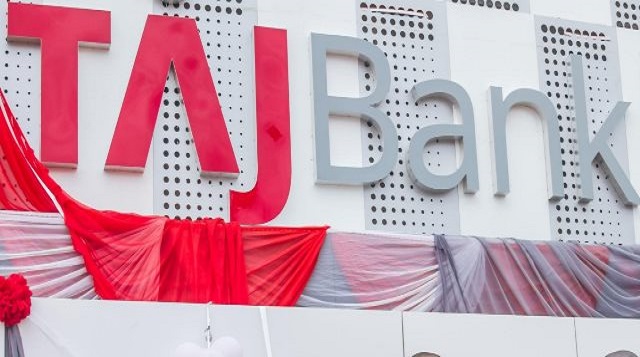E-Financial
AfDB Approves Policy for Victims of Bank-financed Operations

The Board of Directors of the African Development Bank Group has approved a new policy framework for the Independent Recourse Mechanism.

The IRM provides individuals or communities who are adversely affected by bank-financed operations with an independent mechanism through which they can raise their concerns.
They can also seek redress and hold the bank to account for ensuring it complies with its policies and procedures related to sustainability.
The new policy is aimed at strengthening accountability and providing more effective recourse to people affected by bank-financed operations.
According to a statement from the AfDB on Friday, the policy framework is the result of series of internal and public stakeholder consultations that began in December 2019.
This process was part of the third policy review of the bank’s Independent Review Mechanism.
It further marked the first time that the IRM had engaged in such a comprehensive public consultation process.
David Simpson, Director, Compliance Review and Mediation Unit, AfDB, said the new policy represented a significant step forward for the IRM.
“The new policy framework restructures the complaints’ mechanism, to make it more accessible, efficient and predictable.
“It also simplifies the complaint process for users of the Independent Recourse Mechanism,while enhancing its transparency, and providing clearer guidelines for case management.”
Stephanie Amoako, a Senior Policy Associate at Accountability Counsel, an international civil society organisation said: “The new accountability policy, if properly implemented, better serves the needs of communities across Africa.
” This is by removing barriers to access the IRM and creating a more equitable process for those using the mechanism.”
Accountability Counsel supports communities adversely impacted by internationally financed projects.
According to the statement, a new name accompanies the new policy as the Independent Review Mechanism will now be known as ” the Independent Recourse Mechanism.”
The new mechanism has been restructured, replacing the previous external experts panel model with a fully integrated unit that will now lead all problem-solving and compliance review functions.
The new policy strengthens accessibility for complainants by allowing complaints to be filed by a single person.
It enables the mechanism to advise communities on how to submit complaints if needed.
It adopts a zero-tolerance standard for retaliation against complainants and rejects any form of threats.
It also rejects intimidation, harassment, violence, or discrimination towards those that raise concerns through the Independent Recourse Mechanism.
The mechanism also requires AfDB management to make the IRM better known among affected communities by disclosing information about the mechanism at a project level.
Furthermore, the new operational rules and procedures approved by AfDB’s board also provides the IRM with some advantages.
For istance, it has the ability to initiate compliance review processes in certain circumstances without a formal complaint from affected communities.
It also increases complainants’ participation in the complaint-handling process by allowing them the opportunity to comment on draft compliance review reports before they go to the board.
The operational rules and procedures also commit the IRM to pursue a culturally appropriate and gender-sensitive complaint process.
It allows the IRM to consider a complaint’s eligibility even in the case of parallel judicial or non-judicial proceedings.
It further empowers the IRM to make recommendations to the bank on issues related to redress and remedy.
“That is when individuals and communities are adversely impacted as a result of bank-financed operations.
“As well as ensure that agreements reached by parties in problem-solving activities are aligned to international norms,” it added.
While the new policy enters into force with immediate effect and would apply to all new complaints, it is expected that the IRM would require a reasonable transition period to fully implement the new policy.
Where appropriate, ongoing complaints will be transitioned to the new policy over time.
The bank’s complaint mechanism became operational in 2006 and has received over 100 complaints submitted by civil society organisations and affected communities.
The mandate of the IRM covers both public and private sector operations of the bank group.
E-Financial
Retiree Slams N50m Suit against over Alleged Privacy Breach, Unauthorized Accounts

Abiodun Olokunjuwon, a retired civil servant based in Ibadan has instituted a N50 million lawsuit against Moniepoint Microfinance Bank at the Oyo State High Court, alleging that the fintech company opened unauthorized bank accounts in her name without her knowledge or consent.

Filed in February 2026, the suit is among the first significant cases testing the enforcement of the Nigeria Data Protection Act 2023 against a Nigerian fintech institution.
According to the statement of claim, the plaintiff became aware of the alleged unauthorized accounts only after her legitimate bank account was restricted pursuant to a garnishee order linked to a debt she denies incurring.
The restriction reportedly prevented her from accessing funds needed for essential transactions.
The claimant alleges that Moniepoint opened two separate accounts in her name using her National Identification Number (NIN) and Bank Verification Number (BVN) without proper authorization or verification.
Following the discovery, she submitted a Data Subject Access Request (DSAR) under the NDPA 2023. Documents allegedly provided by the bank, according to the suit, revealed significant verification lapses.
The plaintiff claims the accounts were opened using falsified documents, including what she describes as a fake NIN slip and contact information unrelated to her.
She further alleges that the accounts listed a Lagos residential address where she has never lived.
The suit contends that Moniepoint failed to implement adequate identity verification and address confirmation procedures before creating and operating the accounts. It further alleges breaches of statutory obligations under the NDPA 2023, including:
- Failure to ensure personal data processed was accurate and lawfully obtained
- Failure to implement appropriate technical and organizational security measures
- Failure to prevent unauthorized or fraudulent processing of personal data
The claimant maintains that these alleged lapses resulted in serious personal and financial harm.
The plaintiff is seeking N50 million in damages for emotional distress, health complications, and disruption to her financial life.
She is also asking the court to order the permanent closure of the allegedly unauthorized accounts.
No date has been fixed for hearing on the matter.
E-Financial
TAJBank Secures A1 Ratings from Agusto, Datapro

TAJBank Limited has received A1 credit ratings from Agusto & Co and Datapro, marking an upgrade from the Bbb+ rating assigned by Agusto about two years ago and placing the non-interest lender among the highest rated operators in Nigeria’s non-interest banking space.

The rating agencies attributed the improved score to the bank’s high quality balance sheet and strong earnings ratios in the 2025 financial year. The assessment also covered credit risk and operational resilience.
Despite the prevailing economic challenges, the bank was noted to have strengthened its position through operational efficiency and customer-focused services in line with ethical banking principles.
Speaking on the development during an interactive session with journalists on the sidelines of a banking stakeholders’ event in Abuja, the Founder and Chief Executive Officer, Hamid Joda, described the ratings as evidence of the bank’s focus on risk management and internal controls.
He said, “TAJBank Limited latest ratings by these reputable agencies have again validated the management’s commitment to world-class standardisation of the bank’s operations, especially in terms of innovative, real time, techno-powered services and risk management for our growing customers on a sustainable basis.”
Joda added that the bank’s priority remains the deployment of high operational standards to protect customers’ interests.
“As we have consistently maintained, our primary goal is to deploy world-class operational standards and services to protect the interest of our customers with a view to surpassing their expectations and retaining TAJBank at the leading edge of the NIB subsector on a sustainable basis.
“The message these latest best ratings by Agusto & Co and Datapro of our bank is sending to our customers, investors and stakeholders in the non-interest banking space is that with TAJBank, they can be rest assured of safety of their investments, transactions and readiness of the bank’s management to give all that it takes to grow their businesses and support their individual socio-economic wellbeing come rain or shine,” he said.
Also commenting on the ratings, the bank’s Executive Director, Sherif Idi, said the A1 scores reaffirmed management’s commitment to best practice standards.
“The A1 ratings by Agusto & Co and Datapro, the foremost ratings agencies in the country, have reaffirmed TAJBank’s management’s unwavering commitment to best practice standards through prioritisation of investment in human capital, innovative technologies and branch network expansion to consistently make our bank the preferred choice for customers in the NIB subsector of the banking sector,” he said.
E-Financial
Fidelity Bank Launches HerFidelity Apprenticeship Programme 2.0 to Boost Women Entrepreneurship

Fidelity Bank Plc, leading financial institution, has announced the launch of the second edition of its flagship women-empowerment initiative, the HerFidelity Apprenticeship Programme 2.0 (HAP 2.0).

Fidelity Bank
Designed to equip women with practical, income‑generating skills and structured pathways to entrepreneurship; HAP 2.0 will build on the success of its inaugural edition held in 2023.
Speaking with journalists at a media chat to herald the launch of HAP 2.0, the Divisional Head, Product Development, Fidelity Bank Plc, Osita Ede, explained that the initiative has been enhanced to deliver greater impact.
“HerFidelity Apprenticeship Programme 2.0 reflects our commitment to continuous improvement. Having evaluated feedback from the first edition, we have returned with stronger partnerships and deeper mentorship programmes to ensure that women acquire not just skills, but sustainable economic opportunities,” he said.
“At the heart of the programme is guided, real‑world learning. Participants will undergo intensive apprenticeship training under reputable institutions and industry experts across select fields such as hair styling, shoe making, auto mechatronics, and interior decoration,” Ede added.
He noted that HerFidelity Apprenticeship Programme 2.0 goes beyond skills acquisition by offering participants a wide range of business advisory services. These include business and financial literacy training, mentorship support throughout the apprenticeship journey, access to Fidelity Bank’s women‑focused and SME financial solutions, as well as guidance on business formalisation and growth strategies.
Further emphasising the bank’s vision, Ede said, “By integrating structured mentorship with entrepreneurial development, Fidelity Bank is positioning women not just as trainees, but as future employers, innovators, and economic contributors within their communities. This aligns with our mandate to help individuals grow, businesses thrive, and economies prosper.”
Interested participants are encouraged to indicate their interest by visiting https://bit.ly/Apprenticeshipbyherfidelity.
Ranked among the best banks in Nigeria, Fidelity Bank Plc is a full-fledged Commercial Deposit Money Bank serving over 10 million customers through digital banking channels, its 255 business offices in Nigeria and United Kingdom subsidiary, FidBank UK Limited.
The Bank is a recipient of multiple local and international Awards, including the 2024 Excellence in Digital Transformation & MSME Banking Award by BusinessDay Banks and Financial Institutions (BAFI) Awards; the 2024 Most Innovative Mobile Banking Application award for its Fidelity Mobile App by Global Business Outlook, and the 2024 Most Innovative Investment Banking Service Provider award by Global Brands Magazine. Additionally, the Bank was recognized as the Best Bank for SMEs in Nigeria by the Euromoney Awards for Excellence and as the Export Financing Bank of the Year by the BusinessDay Banks and Financial Institutions (BAFI) Awards.

 News3 days ago
News3 days agoABoICT Lecture 2026 to Focus on Impact of AI, IoT on Business Operational Efficiency

 General News3 days ago
General News3 days agoLeo Stan @ 70: Blessed and Bruised by Country, Eyes Next Disruption

 General News2 days ago
General News2 days agoZinox Technologies and TD Africa Forge Strategic Partnership to Revolutionize African Tech Ecosystem

 Telecom2 days ago
Telecom2 days agoUwaje Pays Tribute to Leo Stan Ekeh @70

 Telecom2 days ago
Telecom2 days agoCyber Immunity Emerges as Shield for Nigerians Amid Rising Scams

 E-Financial2 days ago
E-Financial2 days ago$214Bn Missing, Institutions Silent: Is Accountability Dead in Nigeria?

 General News2 days ago
General News2 days agoNITDA, Abia Partner on Enterprise Architecture Reform

 E-Business2 days ago
E-Business2 days agoInterswitch Partners Abia to Digitise Public Hospitals


























